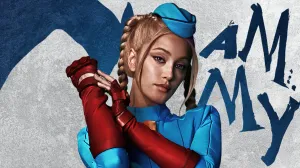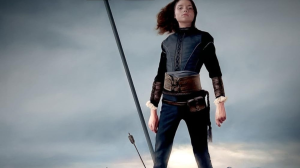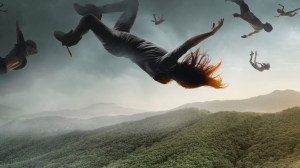The blood immediately begins to flow in HBO’s It: Welcome to Derry. The season premiere opened with young Matty falling victim to the ghoulish It’s shapeshifting tricks. Only serving as an appetizer for the carnage yet to come, a gathering of Matty’s friends get ripped to shreds after sneaking into a movie theatre. And, yes, all that transpires in the pilot episode.
Videos by ComicBook.com
Developed by director Andy Muschietti, sibling Barbara Muschietti and Jason Fuchs, Welcome to Derry precedes 2017’s It feature film. Taking place in Derry, Maine 1962, the show explores the lore alluded to in the original Stephen King novel, It. The eight-episode TV series once again finds a generation of kids and adults contending with an otherworldly menace that awakens every 27 years to feed. Primarily taking the form of clown Pennywise, It torments and terrorizes his prey before devouring them. If the Derry residents and a new family relocating to the cursed town hope to survive, they must uncover It’s past and destroy the ghastly predator… before they all float down here.
Co-showrunner Fuchs spoke to ComicBook about digging into Pennywise’s origins, his ties to Derry, the new Loser’s Club and the cruelty of It.
ComicBook: Welcome to Derry serves as a prequel to the IT movies and this Andy Muschietti universe. What made Mike Hanlon the perfect character to connect some of the tissues?
Jason Fuchs: Looking at the book, which is a 1000-plus page tome, and you are sort of approaching it like a treasure map. You are looking at those pieces of the map that are the most tantalizing or maybe all the lines aren’t filled in, where there is the promise of things as yet discovered, which is a challenge when you are talking about a book that has been adapted into a legendary mini-series and two films. So, what are those pieces of undiscovered territory? The obvious place to look were the Mike Hanlon interludes. By the end of this process, you feel like you have your Mike Hanlon cap on and kinda doing what Mike did. You are Mike Hanlon, sitting up in the attic of the Derry library and we were sitting in a fairly nice conference room on the Warner Brothers lot.
We became amateur Derry historians, sifting through the mysteries of those interludes, which from a creator-showrunner perspective, they are the dream. They give you just enough to go on, just enough of a hint at further mysteries and clues into the backstory of Derry that you get excited, but not so much that you feel constrained. It’s this perfect balance of what you know and what you don’t. It feels like as an audience, that’s what you want at this stage of the franchise. You want enough of the stuff you are familiar with. You want to come back to certain locations. You want to meet certain characters again, certainly Pennywise among them. But you also want something fresh. We have already told this story of the book in the films. You have to approach this in a way that you want to find something fresh, just like Mike Hanlon. To some extent, I think we did.
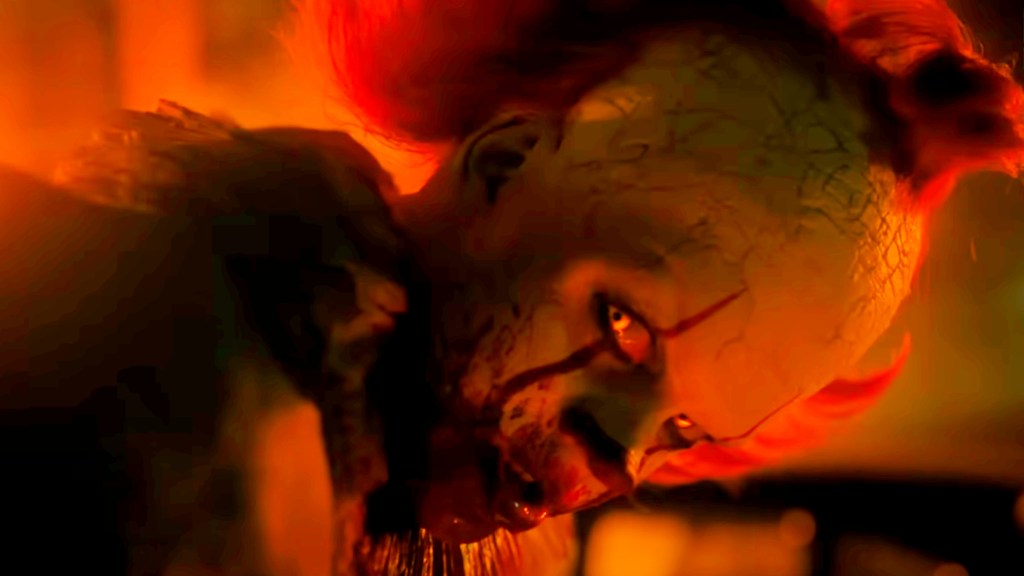
What makes Derry this nexus point for Pennywise’s reign of terror? How important is the town to the overall lore?
Fuchs: We know one thing from the book and we see a little bit of this in the movie. It landed on a piece of territory that would one day become Derry, Maine. It’s not a mystery to It fans, and certainly to viewers of It: Chapter Two, of how It arrived in this particular spot geographically. What is a mystery is why It… an interdimensional, shapeshifting creature who is a being of pure light and can seemingly go anywhere and do anything and be anyone… has chosen to remain in Derry? That was a mystery that first occurred to me, not as part of the development process of this show, but that was something I was curious about from the time I was 11-years-old and reading the book at an inappropriate young age. You are seeing a TV show that is really the product of a bunch of mega Stephen King fans and mega It fans, who have been thinking about this stuff far longer than they’ve been involved in the franchise. Certainly, these are questions that I have been imagined as a fan and wanted to know the answers to. It’s really a privilege, and tremendous fun, to wade into these mysteries and try to put the pieces together.
But the question of why Derry, why this spot and why it stays cycle after cycle is one of the endearing mysteries of the canon and one of the central mysteries of the show. I think one of the challenges of doing a show like ours is, yes, we want to resolve some mysteries and provide some answers. But part of the fun of this world is that it is a world of mystery. We don’t want to answer everything. I think that one of our goals was to answer a lot of Stephen King questions, but to raise some fresh mysteries along the way. You will get some answers, but there will be some fresh questions suggested this season, as well.
This series serves as an origin of It. What were some of the burning questions you wanted to tackle?
Fuchs: Pennywise is one of the great mysteries. There are hints in the interludes about what Pennywise’s backstory is. We get the cryptic mention of a man named Bob Gray. You get the moment, which Andy Muschietti brought to life so brilliantly in Chapter Two, of Beverly’s encounter with Mrs. Kersh, when she goes back to see the dad. But we didn’t know what all those pieces meant. You leave the book, you leave the films asking… at least I certainly did… Is Bob Gray an actual person in Derry’s past or yet another fictitious guise that It assumes? Is Mrs. Kersh a real citizen of Derry? Or, is that purely a little bit of puppetry for the benefit of terrifying Beverly that one day? Those are questions that we will get very firm answers to by the end of these eight episodes. Particularly, the Bob Gray of it all, I think that Pennywise is certainly a terrifying spectre.
Pennywise has become an iconic cinema villain in the process, but we never understand why It is so drawn to this one manifestation. It can change into anything it wants to. But there is something about this clown, something about the history there, that brings him back time and again to that particular form. As we wade into the story, we are going to go to some pretty unexpected places in terms of that mythology and get a real understanding of what that connection is, what that relationship is, why It is drawn to this form and how much of what It has revealed to us thus far… about Mrs. Kersh and about Bob Gray… how much of that is real and imagined.

This generation’s Losers Club take more of a center stage in the second episode. What can viewers expect from their first encounter or awareness of It?
Fuchs: These kids have certain things in common with the Losers of 1989 and, in other ways, they are very different. That was the intent. They are all outsiders. They are all characters who don’t fit in, who find each other and begin to form this bond with one another, that is going to be the key to their survival, if they indeed survive. It’s 1962, so there’s an innocence to childhood in that time that maybe was a little bit different than what childhood looked like growing up in the late 80s, and certainly growing up, in the present day. That informs the way they approach their mission.
I also think they have the benefit of having slightly different relationships with the adults around. The Losers really have no adults they can trust. Every single one of the grownups that our Losers encounter in 1989 dismiss them totally, are antagonistic if not outright villainous as in the case of Beverly’s dad and to a certain extent, Eddie’s mom. That’s not the case here. Starting with Will Hanlon, who we get to meet at the top of episode two, the son of Leroy and Charlotte, he had a family with challenges. There are fractures in the base of that family and we are going to watch those fractures splinter or heal by the end of the season. But his parents are not in the spell of Derry. Leroy has just been deployed to the Airforce base in our first episode. Charlotte has just arrived in town at the top of episode two, so they have the benefit of not having fallen totally under that Derry spell. Will has a little bit of an advantage, or seemingly so, because he has a family who seems to love him very much. He has a family he can trust that none of our Losers did. That’s true of Clara Stack’s character, Lilly. She is someone who has a mom, that there is a certain relationship with. She is cold to the prevails and traumas of Lilly, but she’s not actively an antagonist in the way Beverly’s dad was. So, these kids have some advantages that seem to be advantages. They have alliances with grownups.
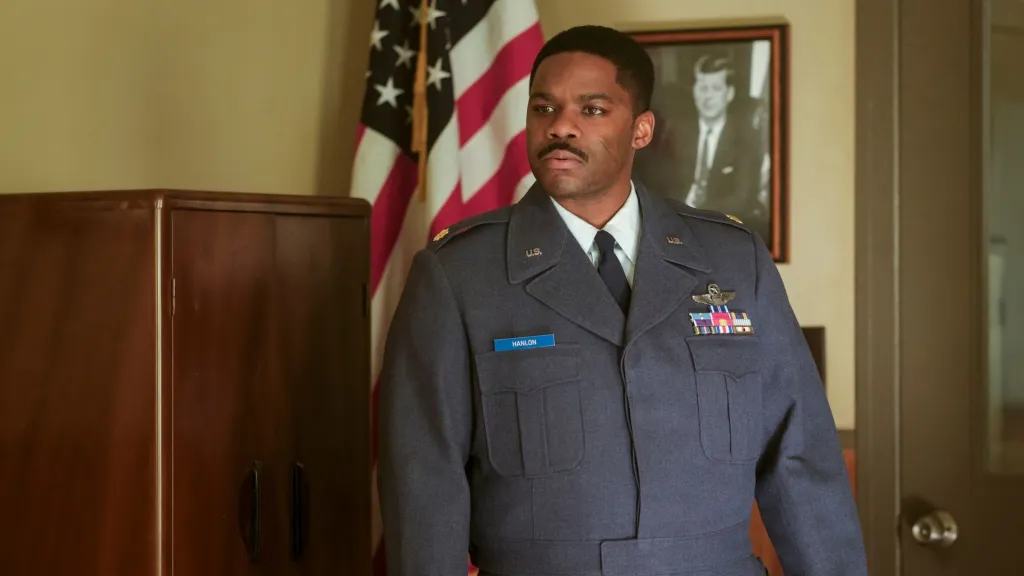
How quickly do they take a proactive stance against this supernatural threat?
Fuchs: These characters are complex, interesting young people who are figuring things out, to some degree, faster than the Losers did of 1989. It’s going to be fun to see how they build this alliance among them, how that alliance either sticks together or falls apart. Particularly, in episode three, you are going to see a real plan of attack. There is a proper plan on how to appeal to the grownups around them, to persuade them to believe in what they now know to be true. I will be up to the viewers to decide how wise the plan is and how well it goes. But they are very methodical and really smart, these kids, in trying to solve an unsolvable problem, which is how do you survive a town with a monster living in it, where the grownups won’t listen to you?
Don’t hold back. How scary, demonic, gruesome and conniving is It in Welcome to Derry?
Fuchs: Oh, he’s fine. When you work with someone as long as I have worked with that monster, you have to find the good in him. I don’t think there is much good in him. It is a vile creature. It is a cruel creature. There is something about the scares and horror set pieces in this season that, for the lack of a better term, feel mean-spirited in a way that I am not even sure we were willing to fully go in the direction for the films. There is a real cruelty that It is willing to do, that I feel is very authentic to the spirit of the book. It is willing to use your deepest fears, your greatest insecurities and the thing inside yourself that you fear the most. It is adept at identifying and weaponizing that against you. We wanted to really go there. I also think we felt there was an opportunity to ramp up the quality and intensity of the fears and scares. Not just from a gore standpoint, although there’s certainly that, but I have always felt the scariest things are character-driven. The more you understand what terrifies these characters, the more intense seeing them fight those fears really is.
–
What do you think of Welcome to Derry, so far? Leave a comment below and join the conversation now in the ComicBook Forum!




